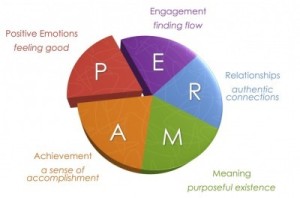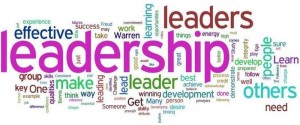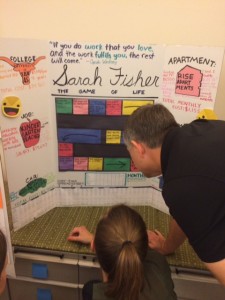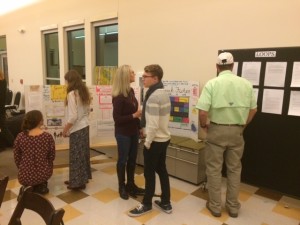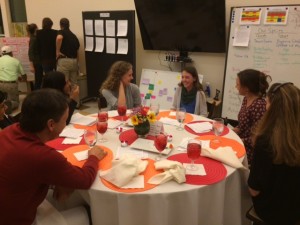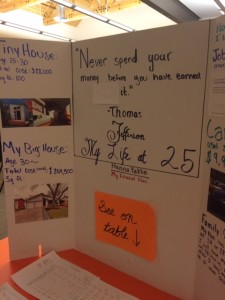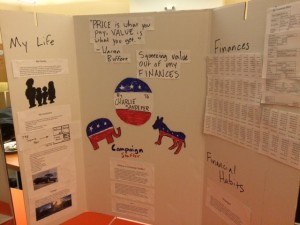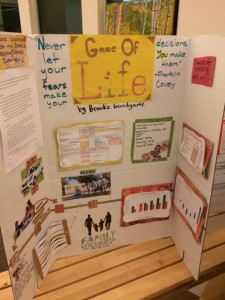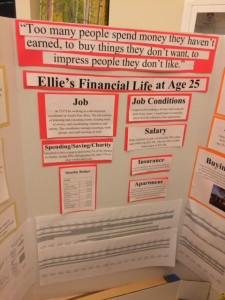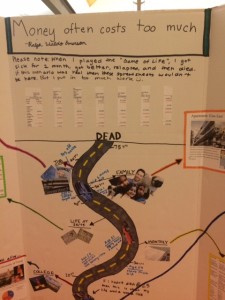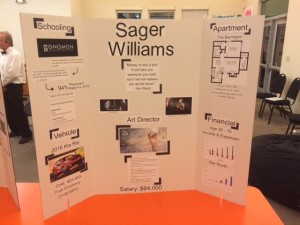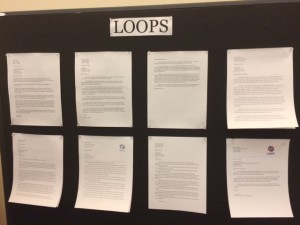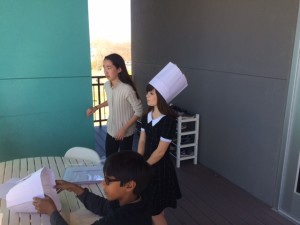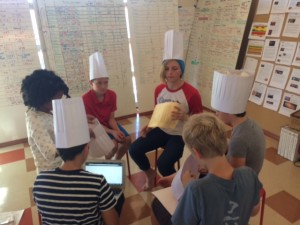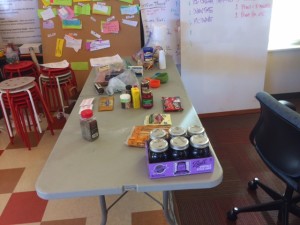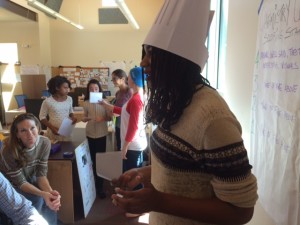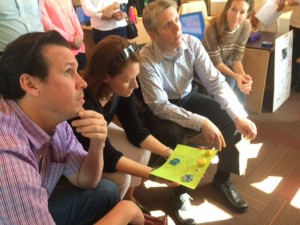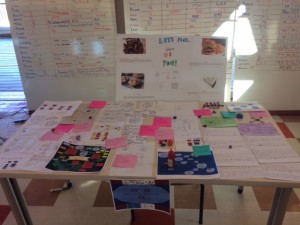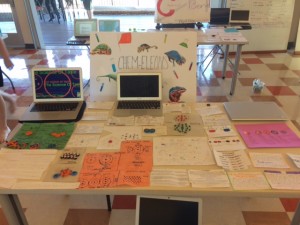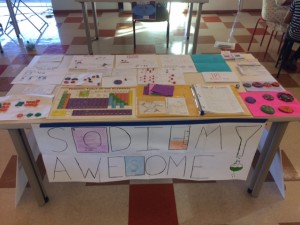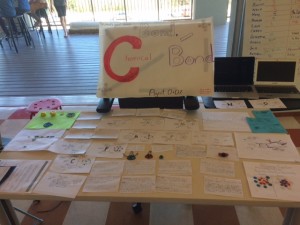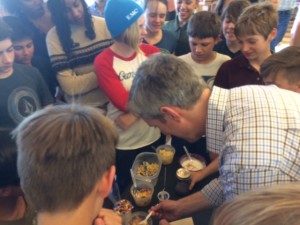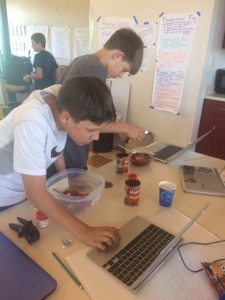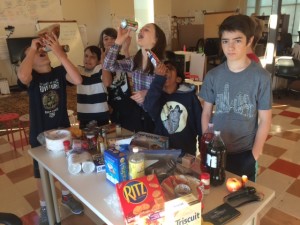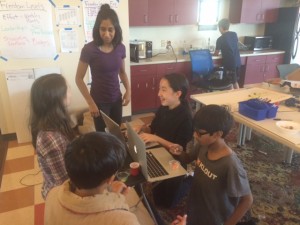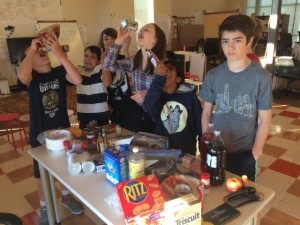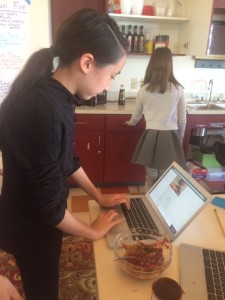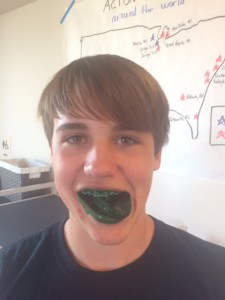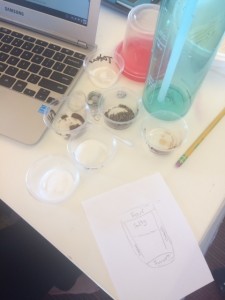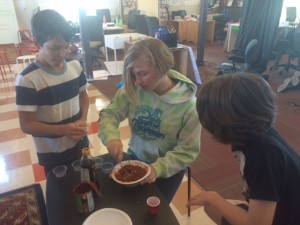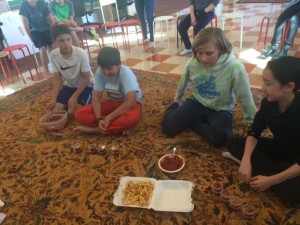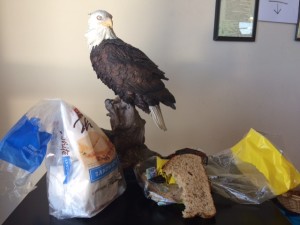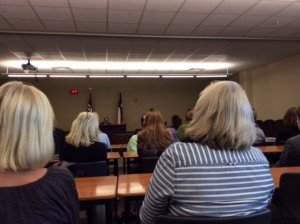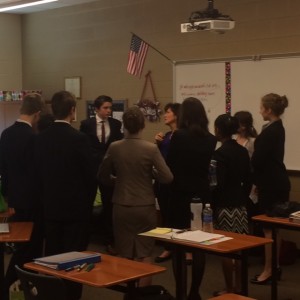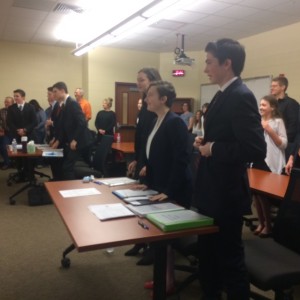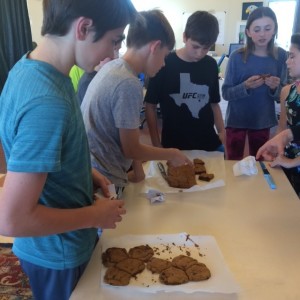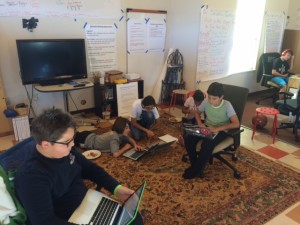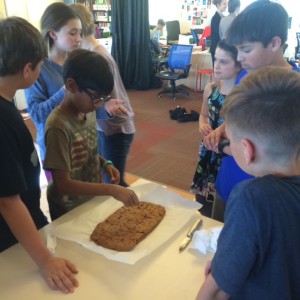
How do you learn Chemistry and Thermodynamics?
Cramming reams of Advanced Placement facts and equations is one approach, except you’ll soon forget most of what you memorized and regurgitated. At Acton Academy, we’d rather build an advanced space station instead.
So this week, Middle School Eagles began the Rocket Quest, a five week contest to design and pitch a space station to Space X, a private space exploration company,
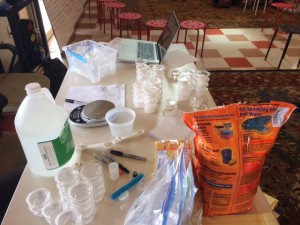
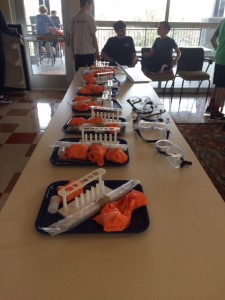
Monday and Tuesday’s Challenge
Choose what you will purchase with precious Eagle Bucks: five solid chemicals, two liquid chemicals, plastic test tubes with rubber stoppers or plastic film containers with a pop off lids. (Both the test tube and the film container can be converted into rockets that launch when the lid releases.)
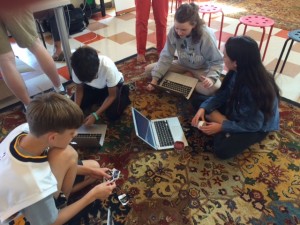
Use your team’s curiosity and creativity to design a rocket fuel that meets Space X’s safety requirements – a fuel that has between a nine and eleven second delay before launching.
By the end of the week, your rocket fuel must meet even more stringent requirements:
- Consistently launch after a ten second delay;
- Reach a minimum height of four meters .
- Use the cheapest fuel in terms of cost per foot of altitude achieved.
No textbook. No equations. No guidance. Merely your wits and the internet.
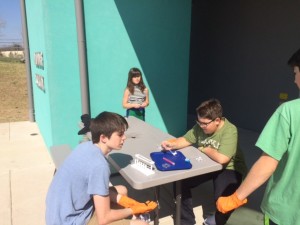
Will simple trial and error, the Scientific Method or chemical equations, stoichiometry and the Laws of Thermodynamics be more useful? Only time and experimentation will tell.
Almost immediately, the real world intrudes. If you win, how will you share the profits between team members? After all, some team members contributed Eagle Bucks for supplies; others know more about Chemistry; and still others provided sweat equity through hard work. Should the equity split be based on fairness, merit or effort?
Wednesday’s Challenge
With the first test launches and many failures behind you, your team now needs to discover a rocket fuel formula that launches in ten seconds, with the least amount of solid fuel. Knowing on Friday that cost will become an issue, you start tracking the fluctuating prices of raw materials.
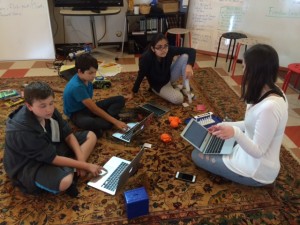
You realize that rapid trial and error experiments helped uncover the basic traits of different mixtures, but a mastery of chemical equations may be required to rapidly shift between fuel formulas as market prices change. It’s time for a crash course in stoichiometry – led by Eagles.
Thursday’s Challenge
The relationships between your goals (safety delay; thrust and cost); variables (solid chemicals; liquids; containers and temperatures) and technique (trial and error; scientific experimentation and scientific theory) are growing more complex.
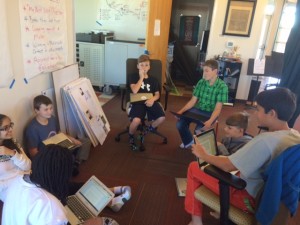
What at first the Rocket Quest was pure fun, it’s rapidly becoming a scientific sprint to unravel the chemical secrets of over 125 possible combinations, with Friday’s launch date looming.
Friday’s Challenge and the Winners
Launch Day arrives too soon. In a last minute flurry of preparations, mistakes occur and tempers flare. Your team must be ready to launch.
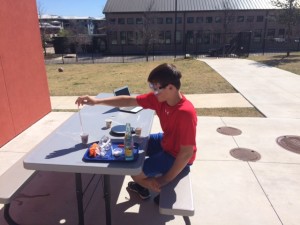
In the end, six of the nine teams achieved a successful launch, but only three within the safety delay window. One rocket soared over forty feet, but failed to meet the safety requirements. A second rocket with the right safety delay sailed high into the air and was the apparent winner, until it’s fuel was found to be three times as expensive as a competitor.
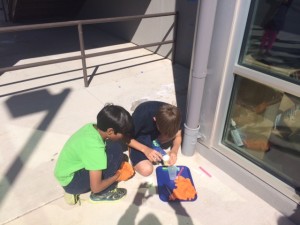
The winner? Truthfully, it didn’t matter. Each team learned valuable lessons about Chemistry, Thermodynamics, Science, Economics and Leadership that won’t soon be forgotten.
Next week, we move into a new phase involving electricity and the launchpad. All moving towards a final launch and sales presentation at the Exhibition in four weeks – where the winning team could win a visit to the real Space X.
This sure beats memorizing answers for a standardized test.


